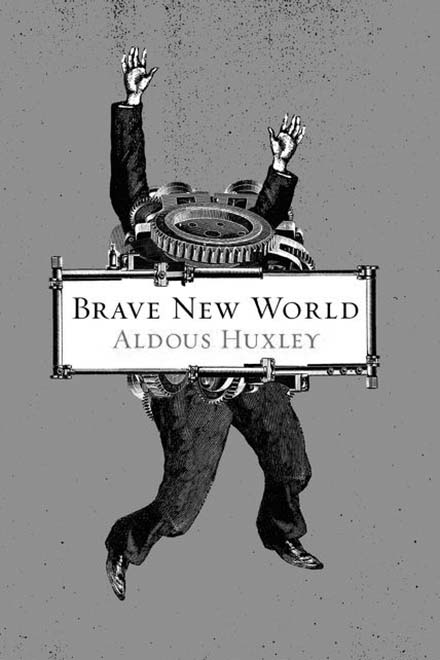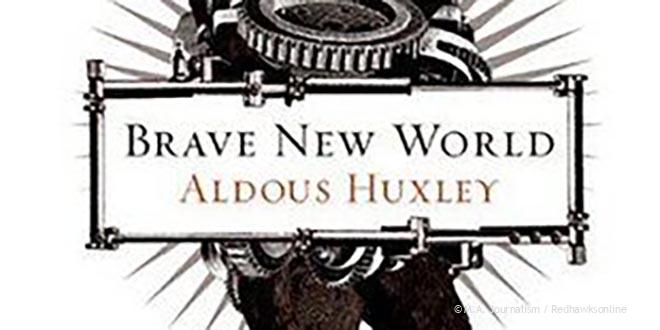Brave New World reveals important issues in modern day society
Genetic modification, government corruption, substance abuse … sounds familiar, right? Aldous Huxley’s Brave New World is a modern classic novel — perpetually relevant — delving into important issues that modern society faces. Generations of readers have identified with this book, but in the age of CRISPR, Opioid epidemics, and Donald Trump, Brave New World may be more relevant than when it was originally written in 1932. CRISPR, in the book’s tackling of genetic modification, Opioid epidemics in the substance abuse, and of course, Donald Trump in the question of leadership and discernment.
Huxley prophetically and accurately addresses many important aspects and fallbacks of modern society (even though his novel takes place in 2540). It’s almost difficult to believe the novel was written over 80 years ago.
The book chronicles the story of a social outcast and his struggle to relate to the people around him. This book importantly depicts negative effects a government instituted “caste system” had on society and individual freedoms.

“Everyone belongs to everyone else” was an important phrase, brought up again and again throughout the novel, in a sense that was the case in this book due to genetic modification and the novel’s social climate. It also portrays the issue of substance abuse by showing the result of a society primarily focused on living for entertainment. The “drugs” in the novel, which were called “soma,” were meant to help people avoid negative feelings such as stress and pain, raising the question, “is life without pain really living?”
What really stuck with me was the issue of the society’s selfishness and empty search for joy and meaning. Characters in the novel would constantly grasp for deeper meaning in their otherwise superfluous lives. Everyday their only goal was to pass time without having to think for themselves. People with remote traces of uniqueness were outcasted. People didn’t want to think for themselves, they wanted to live for themselves. They were so focused on stability that they eliminated individuality. That was the most troubling part. In the words of Huxley, “Universal happiness keeps the wheels steadily turning, truth and beauty can not.” Wow, that’s convicting. What is the cost of happiness? If it means suppressing all of these things, is it even worth achieving?
If you haven’t read this novel, I would highly recommend it along with another classic dystopian novel 1984, by Orwell. Not only do these books entertain, but it also has a world view smashing impact that simply can’t be missed.
The beauty of Brave New World lies in its complexity. Its clear, direct, and surprisingly beautiful language and storytelling methods discuss issues encountered by many people in today’s social and political climate.

